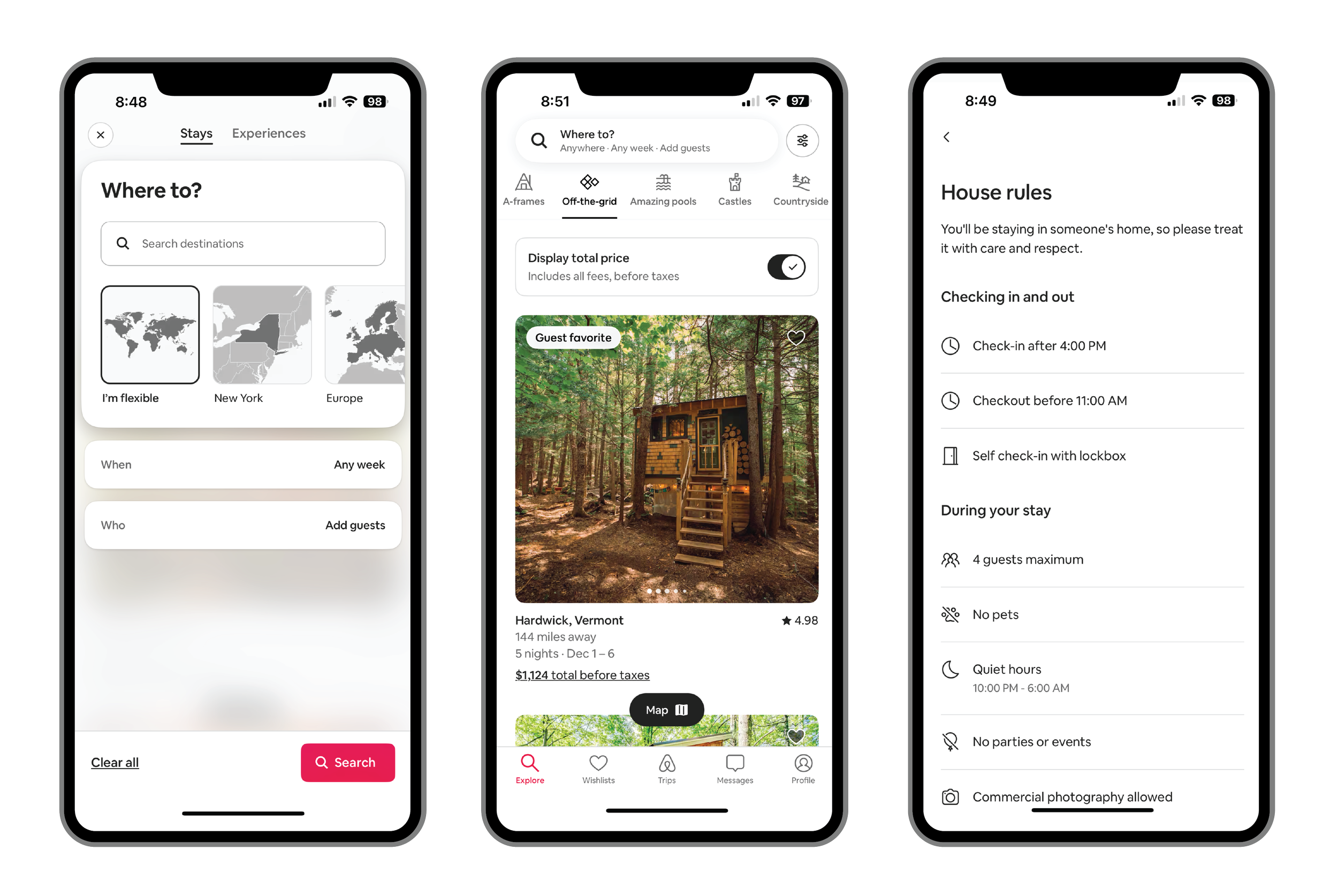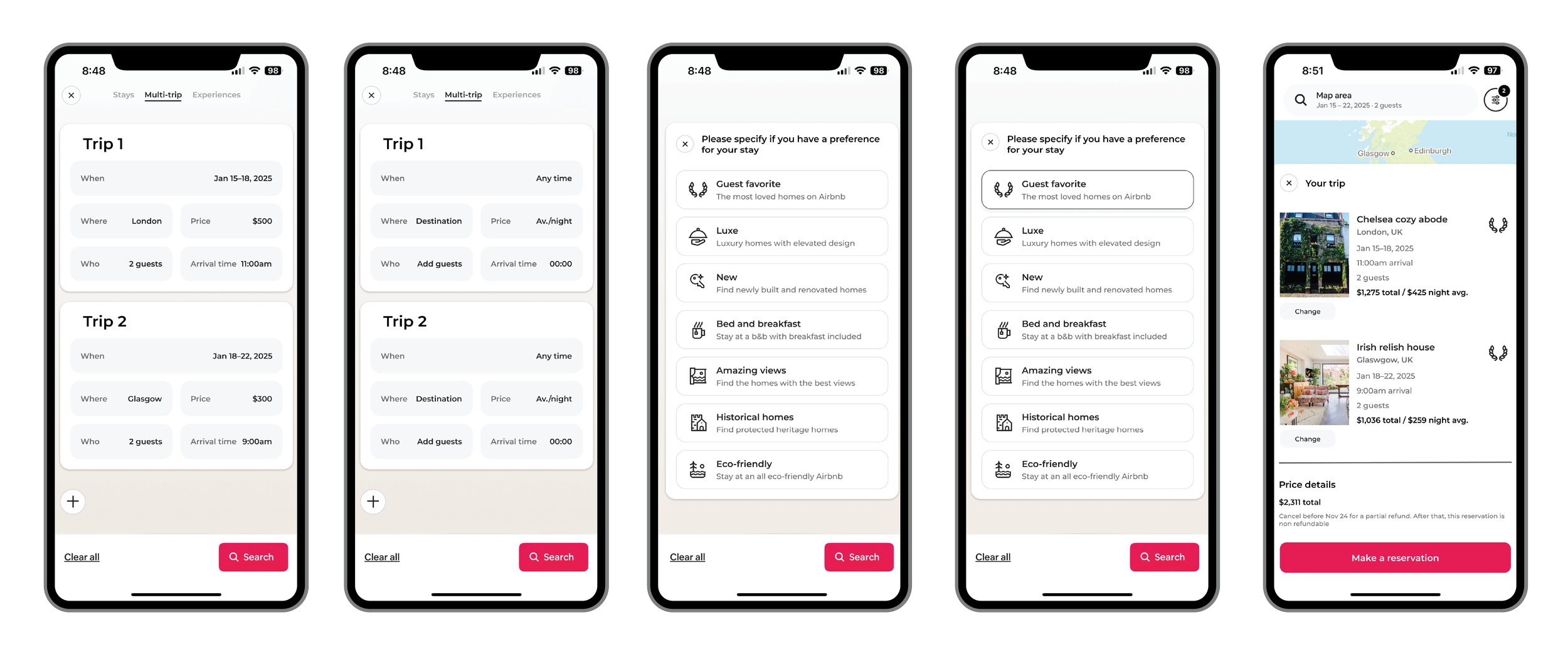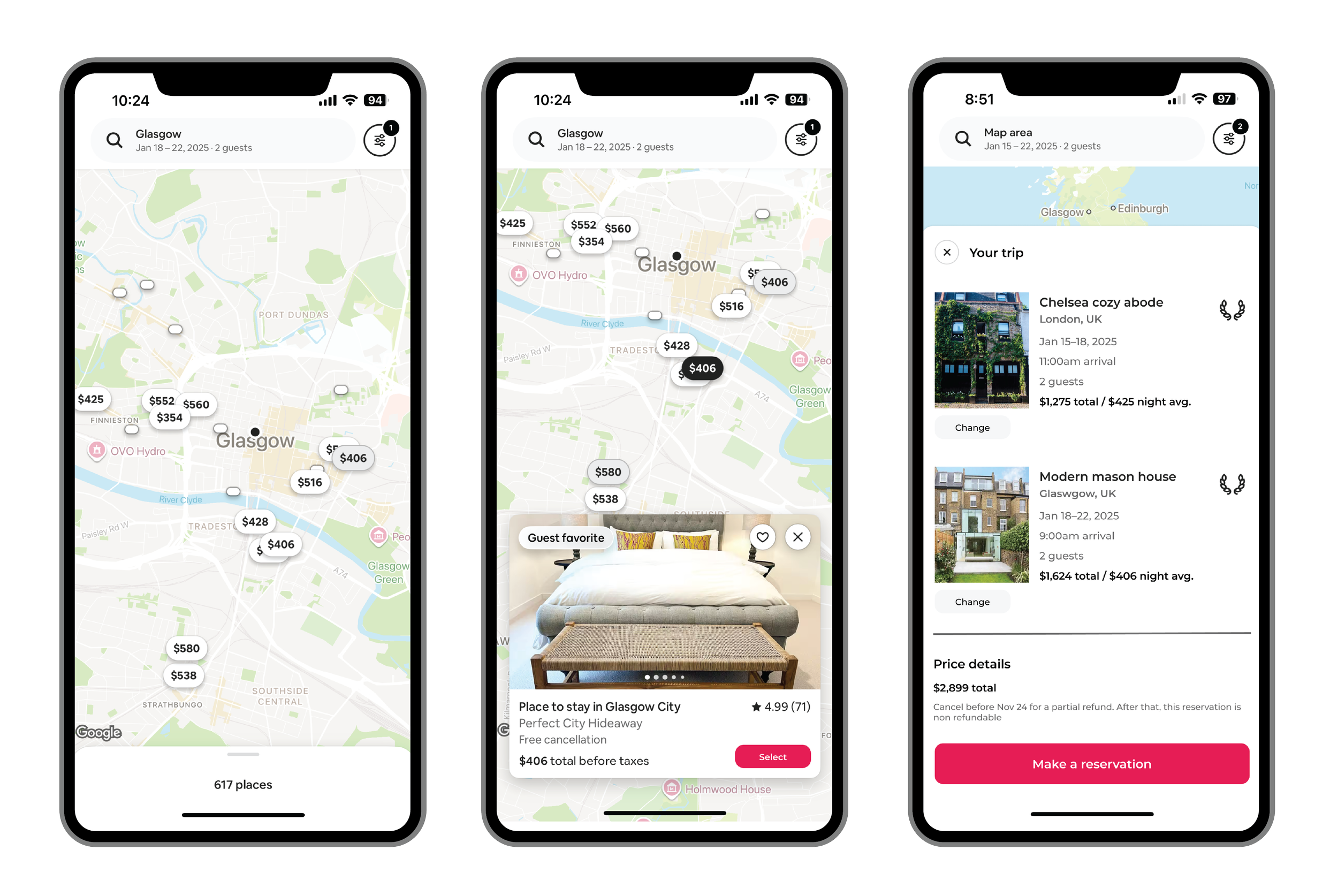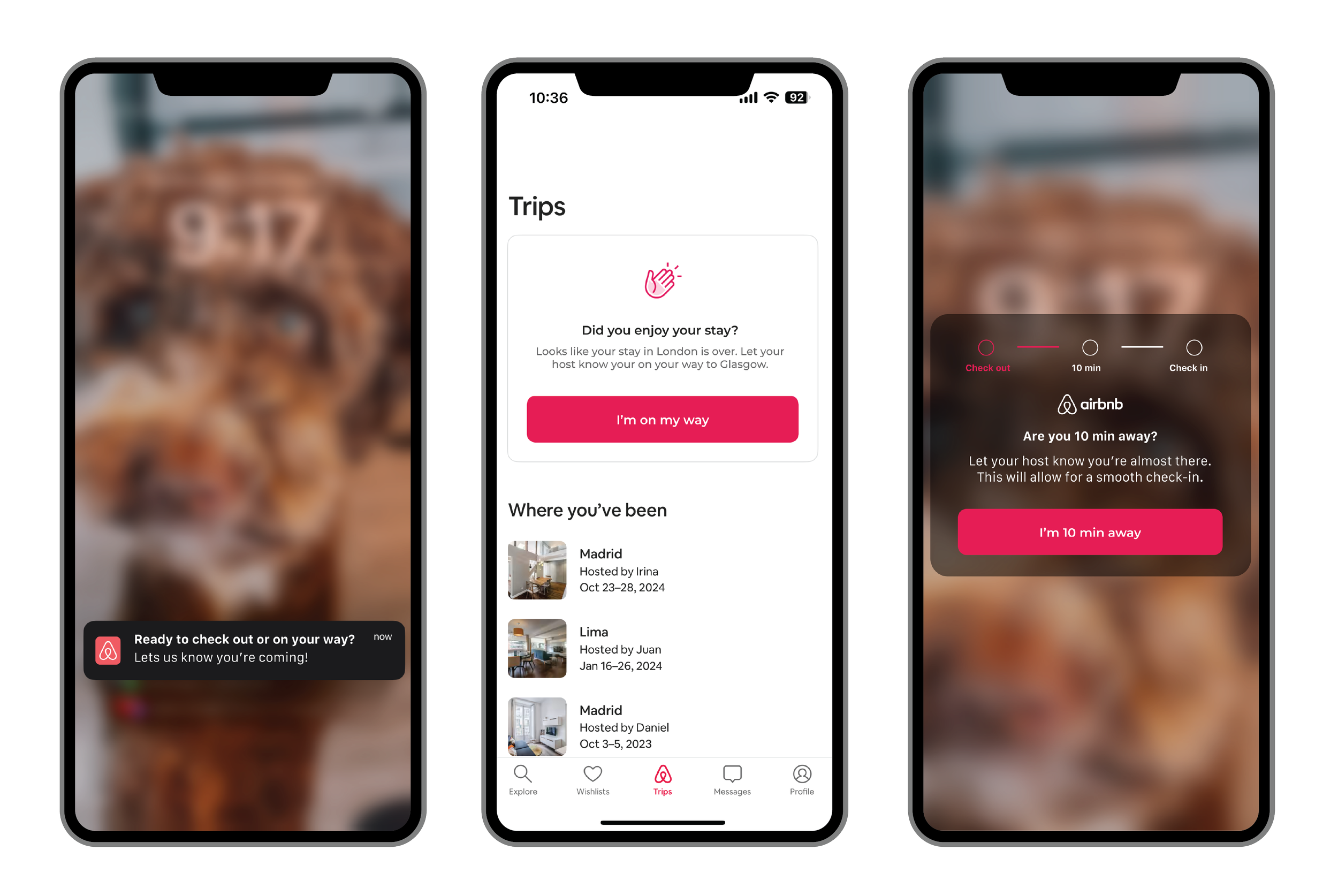Ask/goal
Design and deliver a new feature that enhances Airbnb's competitive edge over hotels, ensuring it aligns with the platform's mission to create unique, personalized travel experiences. The feature should prioritize user needs, leverage innovative design, and strengthen Airbnb’s position as the preferred choice for accommodations.
user research
The first critical area to explore was user research. We began by facilitating a collaborative FigJam session to identify the top nine differentiators where hotels might have an edge over Airbnb. Following this, we conducted research with 50 users to determine which of these differentiators resonated most with them.
The findings revealed that the primary advantage hotels have is their more flexible check-in times. This flexibility is likely due to the availability of multiple rooms and on-demand housekeeping services. Users expressed frustration, particularly during extended trips with multiple stops, about having to wait with their luggage—often at a coffee shop—until their Airbnb check-in time. This inconvenience was seen as detracting from the overall Airbnb experience.
“I go once a year to Europe and love the price point and experiences from Airbnb, but the waiting times for check in!! MAANN. What a nightmare waiting with your huge luggage on a tiny European cafe.”
“I swear every time I book and see check-out at 11 I wanna die. Specially since all other Airbnbs have a 3pm check in. I wish I could ask if I could do a late check out but i’m too shy and embarrassed.”
Exploration
Based on user feedback, we initiated the first iteration of a multi-trip experience. This feature would enable users to seamlessly send their arrival times, allowing them to transition from one Airbnb to the next without time gaps.
To deliver this experience, we recognized the need to leverage AI as a decision engine, ensuring it meets the key priorities identified in our user research: effortless exploration, minimal time investment, and personalized recommendations that consider user preferences.
usability testing + AI logoc
Our users responded enthusiastically to the experience during initial testing. They found it easy, intuitive, and seamlessly aligned with Airbnb’s overall UX. They particularly appreciated how AI personalized their trip planning by making decisions based on their preferences, significantly reducing the time and effort required. Many felt that the pre-generated choices were a major time-saver.
However, a subset of users emphasized the importance of a "Change" button. Which is also a crucial part of AI logic. While they loved the AI-driven suggestions, they wanted the ability to review and compare alternative options. I agreed that preserving Airbnb’s exploratory nature is essential for building user trust and confidence in the decision-making process. It will also be a key piece when feeding new data points to our AI. This will help it predict more accurately what Airbnb option to offer each user.
users?
Understanding and addressing the segmentation within Airbnb's user base—renters and hosts—is crucial. While our primary focus was on improving flexibility for renters through AI-matched listings that accommodate preferred check-in times, it was equally important to consider the needs of hosts.
For hosts, especially those relying on in-person check-ins rather than automated systems, feeling prepared and informed is essential. To address this, I introduced features like a "Check-Out" button, an "On My Way" button, and a "10 Minutes Away" notification, plus added a tracking feature. These additions provide hosts with ample notice to make necessary arrangements, greet guests, or resolve any last-minute issues, fostering a smoother experience for both parties.
Outcomes
Although this project has not yet been implemented, it presents two significant potential outcomes.
First, it would naturally enhance user satisfaction by addressing a major pain point and eliminating a key advantage held by hotel chains. By solving the issue of flexible check-ins, Airbnb strengthens its appeal and positions itself as a more seamless alternative to hotels.
Second, it has the potential to increase revenue. Many of the users we interviewed indicated that they often alternate between Airbnb and hotels due to budget and check-in flexibility. This new UX solution could encourage those users to rely solely on Airbnb by offering an organized and flexible check-in experience, eliminating the need to consider hotels altogether.




